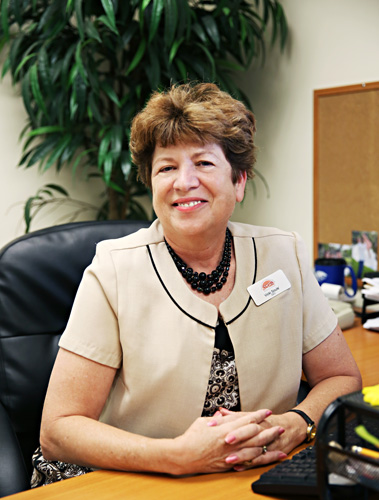
Treasure Coast Community Health is celebrating its 20-year anniversary of serving the health needs of North County residents of all ages at its main Fellsmere facility, and still going strong.
The facility, at 12196 CR 512, is one of four in Indian River County, which include a smaller Fellsmere unit at 44 N. Pine St., and facilities in the central and south Vero Beach area.
As the county’s only federally qualified health center, TCCH receives federal funding through the Health Resources and Services Administration (HRSA), the primary federal agency for improving access to health care services for people who are uninsured, isolated, or medically vulnerable. TCCH is part of a network of 1,250 centers spread across 50 states and U.S. territories, providing care to some 20 million Americans. The centers are directed by local boards.
According to TCCH Fellsmere Communications Director Colette Heid, the facility receives about 23% of its budget from the feds and other funding from insurance and self-pays, as well as donations for equipment and services. Services are available to all and the centers maintain an open-door policy, treating those who are insured and those who aren’t, those who meet guidelines for reduced fees and those who don’t.
The facility sees patients of all ages, “from newborns to seniors. Within the last six months, we’ve seen 132 patients under 1, and 55 over 70, eight of those over 85,” and many others in between. In 2012, Fellsmere TCCH saw over 16,000 patients and recorded over 57,000 visits.
“There is a huge need,” says Heid, “especially in Florida, where Medicaid did not expand. There are many people who fall within 100% to 134% of the federal poverty level who are without coverage.”
“If someone wants to come in, they can,” Heid says. “We are open to all Indian River County residents.” For those without insurance, billing is on a sliding scale, based on family income and number of adults in the family. An insured or self-pay patient does not have to show documentation, but such paperwork is asked of those requesting the discounted health and pharmacy services.
Of the patients who use the Fellsmere TCCH Centers, says Heid, about 90 to 95 percent are from Indian River County. Within the last six months, approximately 800 patients were from the Vero Beach area, 900 from the Fellsmere/Sebastian area and 51 from South Brevard.
The broad range of programs and services the facility offers includes pediatric, adolescent and family medicine; behavioral health for children and adults; primary gynecology; school and employment physicals; workers’ comp medicine; dental services; a lab; free HIV screening; immunizations; diabetes and hypertension management; mental health services; social service referrals.
The center also houses Fellsmere’s first pharmacy, which provides discounts for qualified patients under the federal drug program. Pharmacist Cathy Reilly explains that an individual must be a TCCH primary care patient or be referred by one of the specialists to utilize the pharmacy.
The center’s Think Pink program was developed in response to an issue staff became aware of among the female patients.
“We track outcome measures head-to-toe,” explains Heid, “and we found a common theme when routinely asking women the date of their last mammogram and Pap test. Many turned out to be non-compliant,” meaning they couldn’t remember, they had never had the tests or it had been too long since the last tests. The common stumbling block was cost – moms would bring their children in regularly but let their own health checks go.
“We identified the women, sought local providers” to conduct screenings, said Heid, then sought grants and private donors to offset the costs. Support came from the John’s Island Community Service League, the Grand Harbor Community Outreach and other private benefactors.
“The response was overwhelming,” says Heid.” Through our Think Pink program, 16 of our women patients were diagnosed with cancer, the needed services were provided, and we were able to take them through their treatment.”
The providers bill TCCH directly. Although the program became an immediate success, the need for the tests remains greater than the Think Pink program can currently provide, and further financial support is needed. The center provides referrals if a patient required services it cannot provide.
The Fellsmere staff of 45, medical and support, says Heid, “is incredibly caring, the best I’ve ever worked with. There is such camaraderie. They are dedicated and efficient – we have very little wait time.” Several staff members have been with the center for 17, 18 or 19 years.
Medical staff includes Drs. Latia Ilyadis, Lisa Hage and Daniel Thornton in pediatrics; Dr. Susan Pinsky and physician assistants Laila Barnes and Nancy Laureano in family practice; Dr. Jennifer Moore in gynecology, Dr. Mercedes Borromeo in psychiatry and Mark Gaponiuk, Richard Davis, Richard Carlin and James Hardwick on the dental staff.
Others on staff serve as health navigators to help patients with applications for Medicare, Medicaid and Social Security and seek help from local food banks and other social service agencies. TCCH is a United Way agency and works with other community non-profits as patients’ needs require.
The building itself is larger than it appears from outside. It came into existence when the original location in the old Fellsmere School became too small. Two existing buildings were connected and remodeled into the current facility and, although quarters are tight for current staff and patient load, it is nicely lighted and well-equipped.
“TCCH restored my faith in doctors,” said one smiling patient.
As Heid conducted a tour, a daddy and small girl approached, holding hands, she skipping and smiling, showing off her sparkly sandals. The children’s areas are brightened with art work from local schools, and located at the beginning of a quite long hallway, rather than farther back, which might seem intimidating to a young patient – a friendly touch.
“Our goal,” Heid concluded, is to keep people healthy.



